-
What is bullying?
Overview
Pitt County Schools acknowledges the dignity and worth of all students. We do not tolerate any form of unlawful discrimination, harassment, or bullying in any of our educational activities or programs.
We understand that one of the greatest hurts parents can experience is learning that someone has hurt their child. We also understand that discrimination, harassment, and bullying can cause students to miss key educational opportunities. With the support of parents and students, our goal is to create a school environment where kindness is practiced and everyone is treated with respect.
What is bullying?
When reporting an incident to your school’s principal or assistant principal, understanding the type of behavior can help with incident response. The chart below is intended to help distinguish bullying from other types of behavior that can cause students to experience hurt.

Teasing is playful back and forth behavior where students participate equally. No student involved in teasing should experience hurt.

Conflict arises when students are engaged equally in a disagreement or argument that can be resolved with interventions and supports. Unlike teasing, no one involved in conflict is having fun.

Mean Moments occur when something is said to a student that is intended to be hurtful. Unlike bullying, the hurtful statement was an isolated event.

Discrimination is conduct that unreasonably and unfavorably differentiates treatment of others based solely on their membership in a socially distinct group or category, such as race, ethnicity, sex, religion, or disability status.
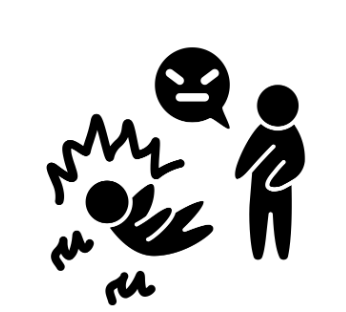
Harassment is hostile, intimidating, or abusive conduct usually targeted at an individual because of their membership in a socially distinct group or category or another differentiating characteristic (e.g. academic status or physical appearance).
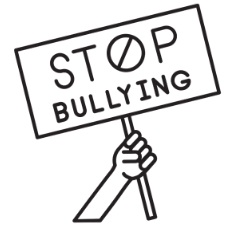
Bullying is deliberate conduct intended to harm another person or group of persons. It is characterized by repeated unwanted aggressive behavior that typically involves a real or perceived imbalance of power, such as a difference in physical size, strength, social standing, intellectual ability, or authority. It may consist of either physical, verbal, or nonverbal behavior.
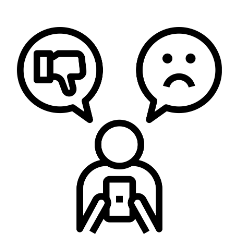
Cyberbullying is bullying that occurs through electronic means, including the Internet, e-mail, text messaging, a personal website, or social media. Pitt County Schools does not digitally monitor students' online activity. However, Pitt County Schools’ administrators will investigate reports of cyberbullying if all of the individuals involved are PCS students or staff.
How do I report bullying?
Parents should not attempt to investigate conduct on their own or take the matter into their own hands. Instead, parents and students should report any act that may constitute an incident of discrimination/harassment or bullying to the principal. Reports may be made orally, by the tip line, or in writing. It is recommended that a report be made within 30 days of an alleged incident to ensure that the principal can undertake a thorough investigation.
What are signs my child might be experiencing bullying or engaged in bullying behavior?
Signs a Child May be Bullied
- Unexplained injuries
- Lost or destroyed personal belongings
- Frequently complains of illness
- Change in appetite
- Difficulty sleeping/frequent nightmares
- Change in grades/interest in school work/desire to go to school
- Sudden loss of friends/avoidance of social situations
- Feelings of hopelessness/decreased self esteem
- Self-destructive behaviors (e.g. running away from home, self-harm, or talking about suicide)
Signs a Child May be Bullying
- Gets into physical or verbal fights
- Has friends who bully others
- Is increasingly aggressive
- Frequently referred to the principal's office
- Has unexplained new belongings or extra money
- Blames others for their problems
- Doesn't accept responsibility for their actions
- Is competitive and worries about reputation or popularity
Source stopbullying.gov.
How does Pitt County Schools respond to bullying?
PCS treats all reports of discrimination/harassment and bullying seriously. When a principal receives a report from a parent, the principal or an assistant principal will investigate the report thoroughly.
A report is treated as an allegation of discrimination/harassment and bullying. If the investigator concludes that discrimination/ harassment or bullying has occurred, the principal or assistant principal will impose disciplinary consequences. Even if conduct does not rise to the level of discrimination/harassment or bullying, the school may take additional corrective action (e.g. conflict mediation and/or imposition of disciplinary consequences for the violation of a different code of conduct violation).
Although disciplinary consequences may be imposed, school staff are generally barred from sharing specific information with anyone other than the student being disciplined and his/her parents.
What can parents & students do to stop bullying in our schools?
While Pitt County Schools does not tolerate discrimination/harassment and bullying, the imposition of disciplinary consequences may not prevent future incidents. Supporting a school environment where kindness is practiced and everyone is treated with respect tends to be the best way to keep schools free from discrimination/harassment and bullying. The chart on the next page highlights some actions that parents and students can take to support a school environment where kindness is practiced and everyone is treated with respect.
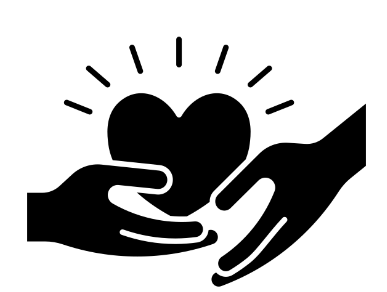
Kindness and respect are learned behaviors that must be taught and practiced daily. As the adults in children’s lives, parents and school staff are uniquely positioned to model kind and respectful behavior and give students the tools to show kindness and respect. There are many ways to show kindness and respect, including:
- Showing support for others’ ideas, goals, or activities
- Being outwardly happy or optimistic, especially when we interact with others
- Connect with students who may be outside of our regular group of friends
- Expressing empathy towards others by listening to them and reflecting back what they share

When you see someone showing kindness or respect, recognize the person for this behavior. Positive recognition for people who show kindness and respect encourages the kind of behavior we want to see.

Discussing incidents where they have been discriminated against, harassed, or bullied or have engaged in discriminatory, harassing, or bullying behavior is difficult for anyone and especially children. Recognizing the signs that someone is being bullied or engaging in bullying behavior is key to addressing the issue. If you suspect that your child is discriminating against, harassing, or bullying other students, work to address the issue with them. School staff may be able to assist parents with helping to change a student’s behavior.

Students who have been discriminated against, harassed, or bullied often feel like they are alone. By reaching out to someone who we suspect is on the receiving end of any of these behaviors, we can counteract some of the hurt and let them know that they are not alone and that they matter.

Parents can help their children by discussing discrimination/harassment and bullying and building a strong sense of self-esteem that no one can crush or defeat. Parents can also help their children identify friends and school staff who they trust and can confide in if they are worried about being discriminated against, harassed, or bullied. Encourage your child to communicate openly with this network of support at school and with you.

If you know or strongly suspect that someone is being discriminated against, harassed, or bullied, please speak up. Principals and assistant principals cannot address what they do not know. When making a report to the principal or assistant principal, details are helpful (e.g. who was involved, who may have witnessed the incident, where the incident occurred within the school, when it happened).
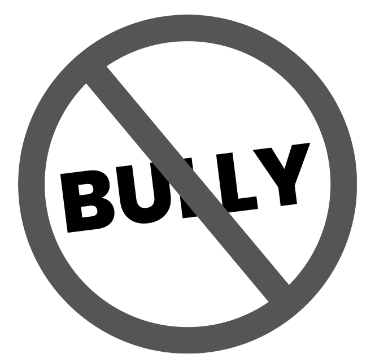
Please, don’t bully back. Although it is tempting to respond to unkind behavior with more unkind behavior, we reduce discrimination/harassment and bullying by not bullying back. School discipline is intended to help students who have engaged in harmful behavior learn from their mistakes. They ultimately deserve kindness and respect, too.
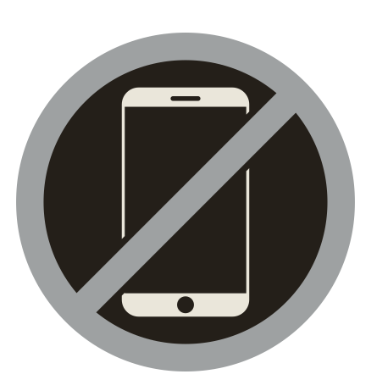
Helping your children understand appropriate social media and internet usage is also key to helping prevent cyberbullying. Setting boundaries on technology may also be helpful. Examples of boundaries including requiring your child to work on a computer, tablet, or Chromebook in a public area of your home where it is visible and can be monitored, friending your children on social media, monitoring your children’s social media, email, and text messages, or requiring your children to store their phones in your room at a certain time each night. If your child is a victim of cyberbullying, preserve any messages, emails, or posts on websites, and report the issue to school staff. If the issue is arising with people outside of the school, report the matter to law enforcement.
Additional Resources
Parents interested in learning more about Pitt County Schools’ policies related to bullying should review the Code of Conduct, which is included in this Guide starting at page 21 and Pitt County Board of Education Policy 4329/7311. Discrimination and harassment are addressed in Pitt County Board of Education Policies 1710/4020/7230, 1730/4022/7231, 1720/4030/7233, 1725/4035/7234, and 1726/4036/7235. Pitt County Schools has also set up a Bullying Prevention section on its website, which provides access to additional resources about bullying. Please visit https://www.pitt.k12.nc.us/Page/1519 to access this section of our website.
In addition to school system resources, https://www.stopbullying.gov/ provides helpful tips and information to address bullying.
Select a School...
Select a School
- A.G. Cox Middle School
- Ayden Elementary School
- Ayden Middle School
- Ayden-Grifton High School
- Belvoir Elementary School
- Bethel School
- C.M. Eppes Middle School
- Chicod School
- Creekside Elementary School
- D.H. Conley High School
- E.B. Aycock Middle School
- Pitt County Early College High School
- Eastern Elementary School
- Elmhurst Elementary School
- Falkland Elementary School
- Farmville Central High School
- Farmville Middle School
- G.R. Whitfield School
- Grifton School
- H.B. Sugg Elementary & Sam D. Bundy Elementary
- Hope Middle School
- Innovation Early College High School
- J.H. Rose High School
- Lakeforest Elementary School
- North Pitt High School
- Northwest Elementary School
- Pactolus Global School
- Pitt Academy
- Pitt County Virtual School
- Ridgewood Elementary School
- Sadie Saulter Pre-K Center
- South Central High School
- South Greenville Elementary School
- Stokes School
- W.H. Robinson Elementary School
- Wahl-Coates Elementary School of the Arts
- Wellcome Middle School
- Wintergreen Primary & Intermediate Schools
- PCS Test School

